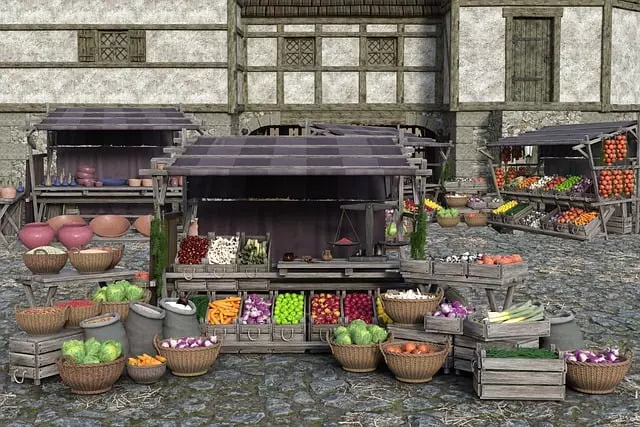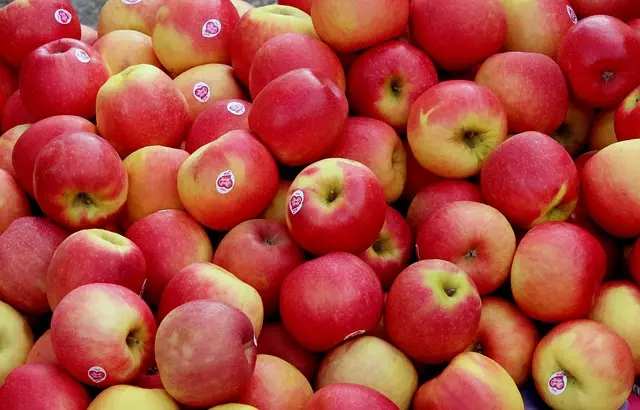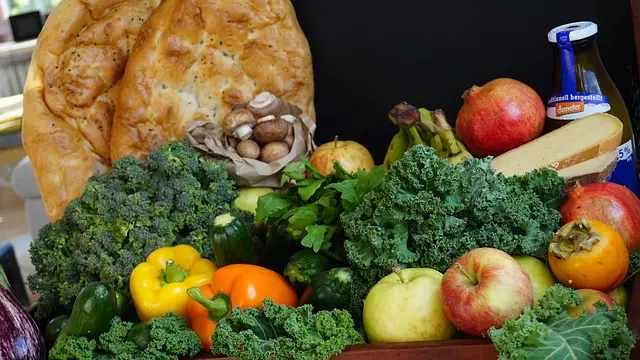Local food delivery services have revolutionized the connection between consumers and local farmers by directly providing fresh, high-quality produce and supporting the financial viability of these farms. These platforms offer meal preparation options that highlight the benefits of locally-sourced ingredients, educating consumers on the importance of their purchasing choices in upholding regional cuisines and culinary practices. The integration of meal prep within these services not only fosters innovation among farmers but also deepens the relationship between eaters and producers, ultimately creating a sustainable ecosystem that benefits all stakeholders, including consumers, local food delivery companies, and the agricultural sector. These services enhance the appeal of fresh, local ingredients, promote sustainable agriculture, bolster local economies, and contribute to environmental health by reducing the carbon footprint associated with long-distance food transportation. They also encourage ethical farming practices, thereby supporting the well-being of farm workers and fostering community resilience. The choice to utilize local food delivery and meal preparation services is thus a multifaceted decision that aligns with values of environmental stewardship, economic sustainability, and community support.
Local food delivery has emerged as a pivotal support system for local farms, fostering economic vitality while bringing fresh, diverse fare directly to consumers’ doorsteps. This article delves into the multifaceted benefits of meal preparation services linked to nearby agricultural producers, highlighting the empowerment of local economies, the enhancement of food quality and choice, and the promotion of community resilience through environmentally and socially conscious choices. Discover how your dining experience can contribute positively to regional farm sustainability and the broader ecosystem.
- Empowering Local Economies: The Role of Local Food Delivery Services in Sustaining Farm Businesses
- Freshness and Variety at Your Doorstep: How Meal Preparation Tied to Local Farms Benefits Consumers and Producers Alike
- Building Community Resilience: The Environmental and Social Impact of Choosing Local Food Delivery Options
Empowering Local Economies: The Role of Local Food Delivery Services in Sustaining Farm Businesses

Local food delivery services have become a vital conduit for sustaining farm businesses by providing a direct-to-consumer sales channel. These platforms empower local economies by connecting farmers directly with consumers who are increasingly conscious of the origins and quality of their food. By offering meal preparation options alongside fresh produce, these services enhance the appeal of locally sourced ingredients, encouraging customers to make more informed choices that support the agricultural sector within their communities. This symbiotic relationship ensures that a greater portion of each transaction directly benefits local farms, as opposed to traditional distribution models that often favor middlemen. Consequently, local food delivery services not only bolster the financial health of these farms but also foster a stronger link between eaters and producers, promoting regional cuisines and culinary traditions. The growth of meal preparation within these services has further expanded the market for locally-sourced ingredients, providing farmers with the incentive to innovate and diversify their offerings. This dynamic aligns the interests of consumers, farmers, and local food delivery companies, creating a sustainable ecosystem that prioritizes local production and consumption. As a result, these services play an integral role in the broader effort to sustain farm businesses and invigorate local economies through the delivery of fresh, locally-prepared meals.
Freshness and Variety at Your Doorstep: How Meal Preparation Tied to Local Farms Benefits Consumers and Producers Alike

local food delivery services have revolutionized the way consumers access fresh produce directly from nearby farms, offering a level of convenience that was previously unattainable. These services not only streamline the process of obtaining fresh, seasonal ingredients but also enhance the variety available to consumers. By establishing direct partnerships with local farms, meal preparation becomes a showcase for the freshest produce, often harvested just days before it arrives on your doorstep. This tight timeframe from farm to table ensures that the nutrients and flavors are at their peak, providing a superior culinary experience compared to food that has traveled long distances or spent extended periods in storage.
For consumers, the benefits of local food delivery services tied to meal preparation are manifold: they gain access to an array of fresh ingredients, reducing the need for preservatives and often leading to healthier dietary choices. The variety of meals becomes a reflection of the regional bounty, with each season offering its unique selection of fruits, vegetables, and proteins. For producers, these partnerships are mutually beneficial, as they gain a stable outlet for their products while consumers enjoy the freshest offerings. This model supports local economies and promotes sustainable agricultural practices, ensuring that the land is preserved for future generations. The alignment of consumer demand with local supply fosters a resilient food system that can adapt to changing circumstances, making local food delivery services an essential component of modern meal preparation.
Building Community Resilience: The Environmental and Social Impact of Choosing Local Food Delivery Options

Opting for local food delivery and meal preparation services significantly contributes to building community resilience, with a myriad of environmental and social benefits. By supporting local farms through these services, communities foster sustainable agricultural practices that reduce carbon footprints associated with long-distance transportation. These deliveries minimize the reliance on industrial farming methods that often deplete soil health and natural resources. Instead, they promote biodiversity by encouraging the cultivation of a variety of crops, which in turn supports ecosystems and wildlife habitats.
On the social front, local food delivery and meal preparation foster strong community ties and support local economies. They provide a steady market for farmers, ensuring that their livelihoods are sustained throughout the year, irrespective of seasonal fluctuations. This stability can lead to better working conditions and fairer compensation for agricultural workers. Moreover, these services often feature food from organic or sustainable farms, which means consumers directly contribute to positive social change by advocating for ethical farming practices. The act of choosing local over distant sources becomes a powerful tool in building a resilient community that values the health of its people, the environment, and its economic vitality.
In conclusion, local food delivery systems represent a vital conduit for sustaining the vitality of local farms and empowering communities. By prioritizing meal preparation from nearby producers, consumers can enjoy a bounty of fresh produce while directly supporting the agricultural backbone of their region. This synergy not only bolsters economic resilience but also fosters environmental stewardship and social cohesion. Embracing local food delivery is more than a choice; it’s a commitment to preserving the unique culinary landscapes that define our communities, ensuring that future generations can continue to enjoy the bountiful harvests these lands yield. Thus, integrating local meal preparation into daily life is a step towards building a resilient and sustainable food system for all.



